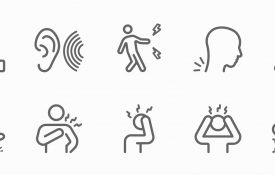-
Your Negative Status Updates Rub People the Wrong Way, Apparently
TIME: Those who use social media as a way to get an ego boost from friends and family (you know who you are), be warned: a new study has found that those with low self-esteem can actually make themselves less likable to others based on what they post to Facebook. The study — co-written by University of Waterloo grad student Amanda Forest and her advisor Joanne Wood – is soon to be published in the Association for Psychological Science’s journal Psychological Science. The study monitored the Facebook status updates of those who admitted to having low self-esteem and who believed that the site was a safe space where they could connect with others and share information.
-
It’s Not Me, It’s You
The New York Times: WHEN Jeryl Brunner, a writer in Manhattan, was in her 20s, she had a friend who was just the sort of acquaintance people scoop up in their social net when they are young and trying to carve out a life in a new city. The friend was fun, outgoing and stylish, and always up for a night of dancing at Area, or a weekend jaunt to a Neiman Marcus outlet in New Jersey. But as Ms. Brunner neared 40, the reasons for their spending time together became less clear. “It’s almost like we were in different movies,” said Ms. Brunner, now 46. “We didn’t connect on this fundamental view of what was important. I don’t obsess about material things.
-
Quiet, Please: Unleashing ‘The Power Of Introverts’
NPR: From Gandhi to Joe DiMaggio to Mother Teresa to Bill Gates, introverts have done a lot of good work in the world. But being quiet, introverted or shy was sometimes looked at as a problem to overcome. In the 1940s and '50s the message to most Americans was: Don't be shy. And in today's era of reality television, Twitter and widespread self-promotion, it seems that cultural mandate is in overdrive. Read the whole story: NPR
-

A New Study Shows How to Boost the Power of Pain Relief, Without Drugs
Placebos reduce pain by creating an expectation of relief. Distractions relieve it by keeping the brain busy. When combined, they make for a potent pain reliever, a study shows.
-
Facebook and Twitter ‘more addictive than tobacco and alcohol’
The Telegraph: Resisting the urge to check social networking sites for updates is more difficult than turning down a drink, according to a study of people's everyday desires. The survey of 250 people found that sleep and sex were the two things people most longed for during the day, but that the urges to keep on top of social networks and work were the hardest to resist. In contrast alcohol and tobacco prompted much lower levels of desire despite their reputation for being addictive. Researchers from the University of Chicago Booth School of Business in America fitted participants with devices which logged nearly 8,000 reports about people's everyday desires.
-
Waaraan kan u het moeilijkst weerstaan? Seks, alcohol, roken of e-mail lezen?
Express.be: Werken en communicatie zijn verslavender dan slapen, seks, alcohol en sigaretten. Dat meldt de website Science Daily op basis van een onderzoek van Roy Baumeister van de Florida State University en Kathleen Vohs van de University of Minnesota bij 205 volwassenen. Die moesten een apparaat op hun lichaam dragen dat tijdens de dag hun verlangens registreerde. Het onderzoek bracht in totaal 7.827 rapporten over individuele verlangens op. Read the whole story: Express.be

